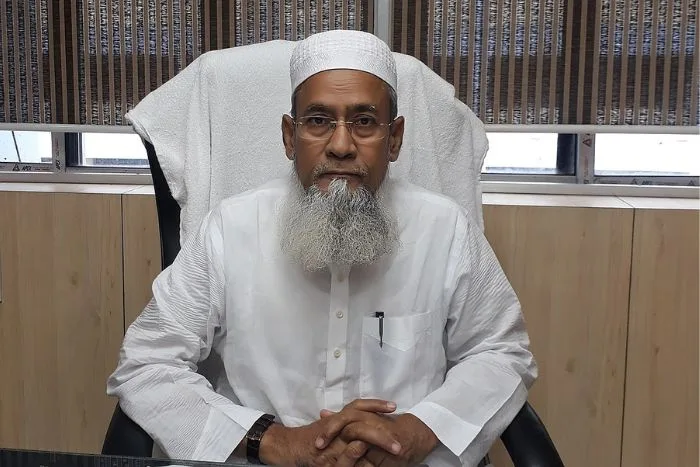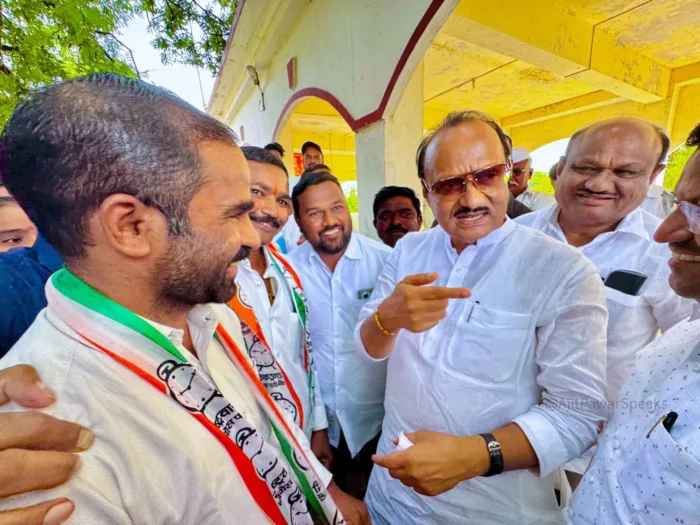Kolkata: The West Bengal chapter of Jamiat-e-Ulama held a significant protest on Thursday against the Waqf (Amendment) Bill 2024, a controversial piece of legislation introduced by the Central government. The bill, which is currently being reviewed by the Joint Parliamentary Committee (JPC), has sparked outrage from various political and religious factions, who argue that it undermines the constitutional rights of Muslims and could jeopardize Waqf properties across the country.
Jamiat-e-Ulama President Denounces the Bill as a Direct Attack on the Constitution
Maulana Siddiqullah Chowdhury, president of the West Bengal Jamiat-e-Ulama, led the protest, vehemently opposing the bill. In an exclusive interview with news agency, Chowdhury accused the Central government of directly attacking the Indian Constitution with this legislative move. He stated, ‘The Constitution of India guarantees the right to freedom of speech and the ability to challenge any effort to subvert its principles. The Waqf (Amendment) Bill is a direct assault on this Constitution. It aims to strip Muslims of their rights and destroy Waqf properties, which are vital for the community. This is not within the authority of the Prime Minister. Why is only the Muslim community being targeted when Hindus control ten times more property? We demand the immediate withdrawal of this bill. The government’s divisive and communal agenda will weaken the unity of the country.’
READ IT NEWS IN HINDI
West Bengal Chief Minister Mamata Banerjee Calls the Bill “Anti-Federal”
The bill has drawn sharp criticism not only from religious groups but also from political leaders. West Bengal Chief Minister Mamata Banerjee also weighed in on the issue, calling the Waqf (Amendment) Bill ‘anti-federal. ‘Speaking during a session of the state assembly, Banerjee remarked, ‘The Central government has introduced this bill without consulting the state governments. This will lead to the devastation of Waqf properties and, more importantly, is a direct attack on a particular religion. This is an anti-federal bill, and we oppose it strongly.’
Banerjee’s comments highlight growing concerns among state leaders about the potential centralization of powers over religious properties, traditionally managed by state Waqf boards.
Critics Warn of Dangers to Waqf Properties and Religious Rights
The Waqf (Amendment) Bill has become a hotly debated issue, with critics fearing that it could lead to the exploitation and mismanagement of Waqf properties. These properties, which serve as vital sources of funding for various religious and charitable activities, are managed by Waqf boards at the state level. Opponents argue that the bill gives excessive control to the central government, making it easier for properties to be taken over or misappropriated.
Proponents of the bill, on the other hand, claim that it is necessary to reform the management of Waqf properties to ensure transparency, accountability, and better governance. However, the proposed changes have faced backlash for allegedly being disproportionately harmful to Muslim communities.
Lok Sabha Extends the Joint Parliamentary Committee’s Review
In a related development, the Lok Sabha recently voted to extend the term of the Joint Parliamentary Committee (JPC) reviewing the Waqf (Amendment) Bill. The extension comes after the committee highlighted unresolved disputes between state governments and Waqf boards over the ownership of properties. The JPC had initially planned to finalize its report, but it became clear that additional time was needed to resolve these issues.
JPC chairman Jagdambika Pal explained the committee’s need for more time, saying, ‘In our meeting on Wednesday, it was pointed out that disputes exist in six states between Waqf boards and state governments over property ownership. We have not received sufficient responses from these states, and thus we are requesting an extension for further deliberations.’
Expected Timeline for the Bill’s Consideration
The Waqf (Amendment) Bill is now slated to be tabled during the final week of the 2025 budget session, after the JPC submits its final report. As the review process continues, the bill’s proponents and detractors are preparing for another round of intense discussions in Parliament. Its passage could mark a significant shift in the management of religious properties and spark nationwide debates about its implications for religious freedom and governance.
Growing Opposition to the Bill Across the Country
The protest by the West Bengal Jamiat-e-Ulama is likely to be the first in a series of public demonstrations against the Waqf (Amendment) Bill. As the bill progresses through the legislative process, other religious and political groups are expected to join in opposition, heightening tensions over its potential impact.
With concerns about the bill’s impact on religious freedoms and property rights, the Waqf (Amendment) Bill is quickly becoming a key issue in Indian politics. The final decision on the bill could have far-reaching consequences for the relationship between the central government, state governments, and religious communities, particularly Muslims. The debate is expected to intensify as the JPC continues its investigation, and the bill moves closer to being debated in Parliament.
PAN 2.0 Project: All You Need to Know About the New PAN Card System
Contents
- 1 READ IT NEWS IN HINDI
- 1.1 West Bengal Chief Minister Mamata Banerjee Calls the Bill “Anti-Federal”
- 1.2 Critics Warn of Dangers to Waqf Properties and Religious Rights
- 1.3 Lok Sabha Extends the Joint Parliamentary Committee’s Review
- 1.4 Expected Timeline for the Bill’s Consideration
- 1.5 Growing Opposition to the Bill Across the Country
- 1.6 PAN 2.0 Project: All You Need to Know About the New PAN Card System
- 1.7 Share this:










